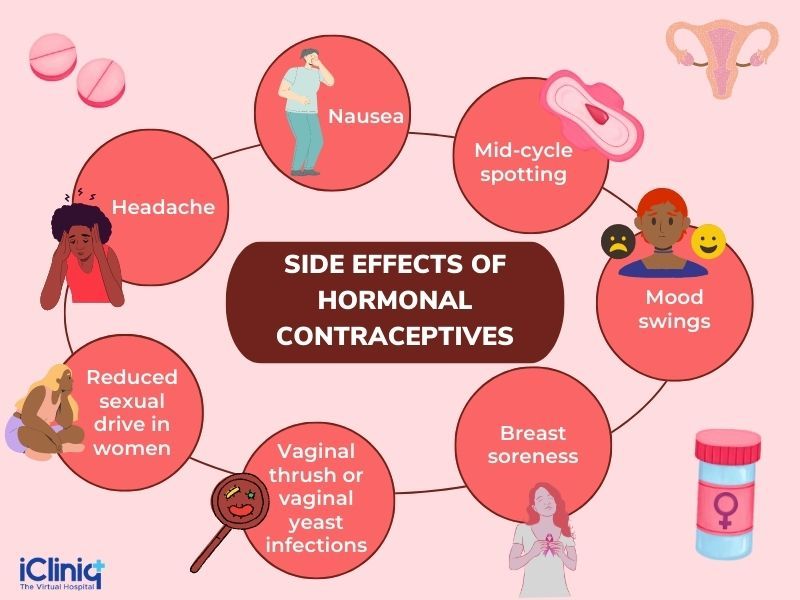Hormonal birth control is a widely used method of preventing pregnancy that involves taking hormones to regulate a woman’s reproductive cycle. These hormones work by preventing ovulation, thickening the cervical mucus to block sperm from reaching the egg, and thinning the lining of the uterus to prevent implantation. There are various types of hormonal birth control available, including the pill, patch, ring, shot, and hormonal IUD.
Benefits of Hormonal Birth Control
Highly Effective: Hormonal birth control is over 90% effective in preventing pregnancy when used correctly.
Regulates Menstrual Cycle: Birth control pills can help regulate menstrual cycles, reduce cramps, and make periods lighter and more predictable.
Reduced Risk of Ovarian and Endometrial Cancer: Some studies have shown that long-term use of hormonal birth control can reduce the risk of ovarian and endometrial cancer.
Treatment of Acne: Hormonal birth control can help improve acne in some women by regulating hormonal imbalances that can contribute to breakouts.
Decreased Risk of Anemia: Women who experience heavy periods may benefit from hormonal birth control, as it can help reduce blood loss and the risk of developing anemia.
Convenience: Hormonal birth control methods like the pill, patch, and ring are easy to use and can be discreetly carried and taken on a daily or monthly basis.
Side Effects of Hormonal Birth Control
Nausea: Some women may experience nausea when starting hormonal birth control, but this usually improves with time.
Weight Gain: While not common, some women may experience weight gain as a side effect of hormonal birth control.
Headaches: Hormonal changes can trigger headaches in some women, but these usually subside after a few months.
Changes in Libido: Some women may experience changes in their sex drive while on hormonal birth control, either an increase or decrease in desire.
Mood Swings: Hormonal birth control can sometimes affect a woman’s mood, leading to increased emotional sensitivity or mood swings.
Increased Risk of Blood Clots: Women who smoke or have a history of blood clots may be at a higher risk of developing blood clots while on hormonal birth control.
Irregular Bleeding: It is common for women to experience irregular bleeding or spotting in the first few months of starting hormonal birth control, but this usually resolves with time.
Is Hormonal Birth Control Right for You?
It is important to discuss the benefits and risks of hormonal birth control with your healthcare provider to determine if it is the right choice for you. Your doctor can help you choose the best method based on your individual needs, medical history, and lifestyle. Remember that while hormonal birth control has many benefits, it may not be suitable for everyone, and it is important to weigh the risks and benefits before starting any new medication.

